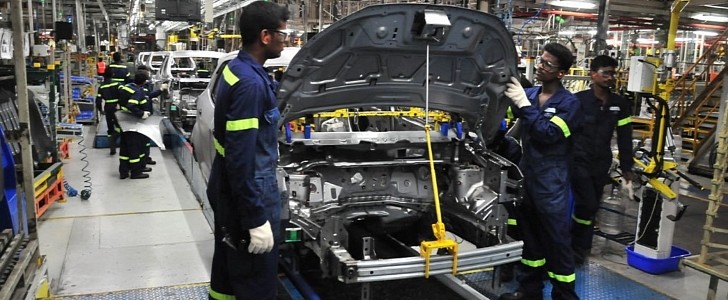Ford’s transition to EVs made another victim. Focusing on the electric mobility shift and its Ford+ strategic plan, the company had to let go of manufacturing operations that did not make a profit. After doing so in Australia and Brazil, the company announced on September 9 that it would also be the case in India.
Jim Farley said that Ford had more than $2 billion of operating losses over the past ten years. To make matters worse, the demand for new vehicles in that market “has been much weaker than forecast," according to the company’s CEO.
The bottom line is that 4,000 people will lose their jobs in that country. Ford plans to focus on imported global vehicles there, just like it has done with Australia and Brazil. Until now, the company had two manufacturing plants in India: Chennai and Sanand, which produced both vehicles and engines.
The Chennai plant will be completely deactivated. Production for the Indian market will cease immediately in both plants, and export production will phase out until Q2 2022 at Chennai and until Q4 2021 at the Sanand unit. The good news is that the Sanand factory will keep producing engines for the Ranger, but only for foreign markets. With that, 600 jobs will be preserved.
Ford ensured it would keep honoring warranty coverage and selling aftermarket parts for customers. That may help some of the Ford dealers in the country keep their doors open, but only a few will do so.
Ford used to sell more affordable cars in India, such as the Figo (Ka), Aspire (Ka Sedan), Freestyle (Ka+ Active), and EcoSport. Without these vehicles, the company will focus on more expensive models, which most Indian customers cannot afford. That will also kill multiple indirect jobs connected with the company’s manufacturing activities in India.
Farley said these decisions were “difficult but necessary.” A way to compensate for them was to focus on the Ford Business Solutions in the country, which currently employs 11,000 people involved with software development, data science, R&D, finance, and accounting. Blue-collar workers willing to relocate will have to present some of those skills or look for a job in Maruti Suzuki and Hyundai, which dominate the Indian market.
The bottom line is that 4,000 people will lose their jobs in that country. Ford plans to focus on imported global vehicles there, just like it has done with Australia and Brazil. Until now, the company had two manufacturing plants in India: Chennai and Sanand, which produced both vehicles and engines.
The Chennai plant will be completely deactivated. Production for the Indian market will cease immediately in both plants, and export production will phase out until Q2 2022 at Chennai and until Q4 2021 at the Sanand unit. The good news is that the Sanand factory will keep producing engines for the Ranger, but only for foreign markets. With that, 600 jobs will be preserved.
Ford ensured it would keep honoring warranty coverage and selling aftermarket parts for customers. That may help some of the Ford dealers in the country keep their doors open, but only a few will do so.
Ford used to sell more affordable cars in India, such as the Figo (Ka), Aspire (Ka Sedan), Freestyle (Ka+ Active), and EcoSport. Without these vehicles, the company will focus on more expensive models, which most Indian customers cannot afford. That will also kill multiple indirect jobs connected with the company’s manufacturing activities in India.
Farley said these decisions were “difficult but necessary.” A way to compensate for them was to focus on the Ford Business Solutions in the country, which currently employs 11,000 people involved with software development, data science, R&D, finance, and accounting. Blue-collar workers willing to relocate will have to present some of those skills or look for a job in Maruti Suzuki and Hyundai, which dominate the Indian market.







